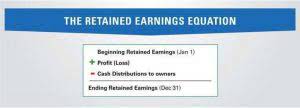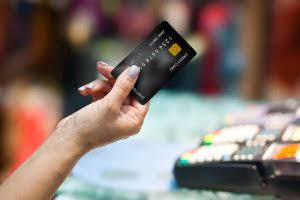
Additionally, you’ll need to comply with various other HMRC regulations, including registering for self-assessment and submitting a tax return each year. Learn whether you should register for VAT and the implications it has for your business. Bookkeeping is all about tracking your business finances and keeping records that give you an overview of your business’s monetary state. It involves keeping track of transactions and business expenses and preparing the necessary documents for your annual tax return. As a sole trader, it is essential to record all your business transactions. Recording transactions involves the process of documenting every activity that involves money in your business.
What taxes do I need to pay and when?

Sound financial foundations enable sole traders to reap the total rewards of entrepreneurship with their eyes wide open to any underlying risks. The adaptable Acumatica Cloud ERP solution consolidates financial management, inventory operations, manufacturing, CRM, sole trader accounting HR tools, payroll, and custom reporting into one interface. Microsoft Dynamics GP has a management solution that offers robust financial capabilities alongside CRM, reporting, payroll, operations, and project accounting tools.
By business type

The most striking difference is simply the need for self-assessments and the likelihood of business owners doing their bookkeeping themselves. This makes it faster for your accountant to reconcile your financial records and process your self-assessment tax return and calculate any tax liabilities or refunds. It also helps you deal with any questions HM Revenue and Customs (HMRC) should raise about your tax affairs. So, as you can see, there are plenty of bookkeeping and payroll services options for sole traders to help keep their accounting in order.
Interpreting Financial Statements: Drawing Meaningful Conclusions
Careful tracking of accounts payable helps plan supplier payments properly. Frequent financial statement analysis highlights issues to address to improve profit margins. Proper bookkeeping is essential for the success of any sole trader business in Australia. It allows owners to manage cash flow effectively, make informed decisions about future investments or expenditures and ensure compliance with taxation laws. Proper bookkeeping is not an optional task for sole traders, but rather a vital one.
- Maintaining proper records helps sole traders avoid penalties and interest charges from HMRC for non-compliance or inaccurate tax filings.
- However, these accounts need reconciliation just as much as bank accounts do.
- It offers a range of features, including invoicing, expense tracking and reporting.
- Accounts receivable (AR) and accounts payable (AP) are essential aspects of managing cash flow for any business owner.
- You will also need to calculate your tax liabilities and ensure that you pay any tax that you owe on time.
- By prioritising proper bookkeeping practices, sole traders can focus on what they do best – running their business – and leave the financial management to the experts.
Professional Accountant/Bookkeeper
If you are entering all your transactions into cloud accounting software throughout the year, you’ll be keeping accurate records as you go. As a sole trader, it’s important to be diligent with your bookkeeping to accurately track business performance, make informed decisions, manage taxes and plan strategically. The advantage of going with something like Xero or Quickbooks is that you’ll never be short of people who know how to use it.
- From here, you must keep track of your financial transactions in slide income, expenses, invoices and receipts, and any tax-related documents that will help you when you file your tax return.
- You should also consider the tax laws in your country when setting up your chart of accounts.
- Once imported into your system, you can categorise these transactions into income or expense categories relevant to your business.
- Bookkeeping is the process of recording and managing your business’s financial transactions.
- It’s essential that you understand the tax rates and information for the self-employed.
- As a sole trader, it is your responsibility to keep accurate records and establish a system for bookkeeping.
- You can choose to do your bookkeeping manually using pen and paper or a spreadsheet, or you can use specialised software to automate the process.
Creating accurate financial statements regularly, analysing key ratios, and interpreting data carefully are critical aspects of reporting financial performance as a sole trader. One of the most important things you can do as a sole trader is keep accurate records of your business transactions for tax purposes. This includes keeping track of income and expenses, reconciling bank accounts, and maintaining up-to-date financial statements such as profit and loss statements.

Reconciling Bank Statements
- If you regularly get the train to go and see your clients, always keep the tickets in a separate part of your bag, or buy them online before you go so you have an email record.
- You can opt for manual bookkeeping using spreadsheets or accounting software.
- HM Revenue & Customs (HMRC) recommends that you keep your records for at least 5 years after the 31 January submission deadline of the relevant tax year.
- In addition to the business.gov.au, there are also various online courses and tutorials that can help you improve your bookkeeping skills.
- Business Accounting Basics has free bookkeeping templates to assist in the process.
- When completing your tax return, you will need to provide details of your income, expenses, and any tax deductions that you are entitled to.
- In addition to tracking inventory levels, you should also monitor assets such as equipment and vehicles used for business purposes.
If holding physical inventory, perform a detailed count of all items in stock at year-end and update your accounting system balances to match. This will help to give you a snapshot overview of where your biggest expenses are. This could be useful when trying to reduce the amount of money being spent overall or for claiming tax relief or allowances available. Look for software that has those features included or allows integrations with other programs.

Wonsulting and TikTok Resumes: Revolutionising Recruitment for the Future
Computerised systems may require more initial investment, but they save time in the long run and are more accurate. Of course, Certified Public Accountant choosing the right method will depend on your business needs and personal preferences. You also must pay Class 2 & Class 4 National Insurance within 3 months of becoming self-employed.

